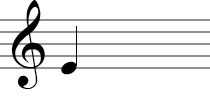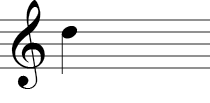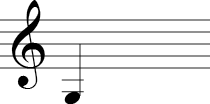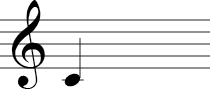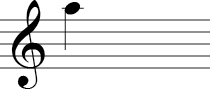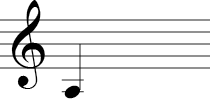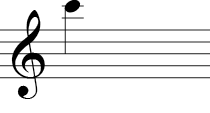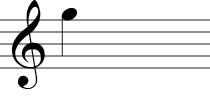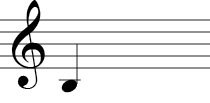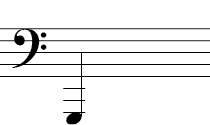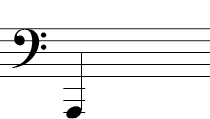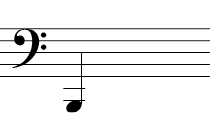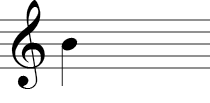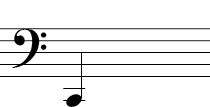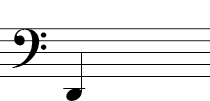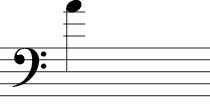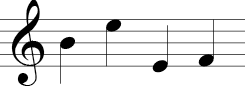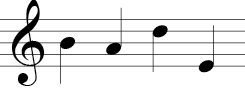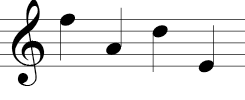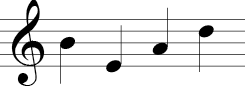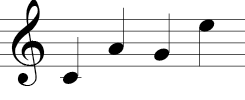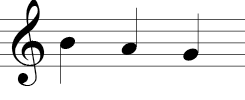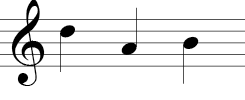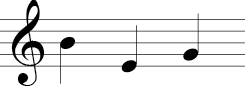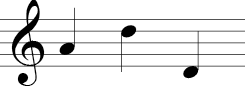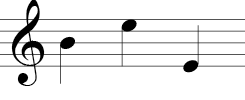July Holy Ghost Service, Friday, July 3, 2020
Ministering: Pastor E.A Adeboye
Worship
Blessed be your name
Blessed be your name
Blessed be your name Oh Lord
Blessed be your name
Blessed be your name
Blessed be your name Oh Lord
Holy is your name
Holy is your name
Holy is your name Oh Lord
Holy is your name
Holy is your name
Holy is your name Oh Lord
Jesus is your name
Jesus is your name
Jesus is your name Oh Lord
Jesus is your name
Jesus is your name
Jesus is your name Oh Lord
We are the Children of July, children of perfection. Happy birthday to us children of July. God bless us all.
Theme: Let there be Light part 7
Text: Acts 9:1-6
We have some very serious prayers to pray tonight and by the time we finish the Holy Ghost Service, you will know that you will pray like never before so that God will send light.
Saul was persecuting Christians. He was on his way to Damascus going to arrest anyone who is a follower of Jesus Christ. On the way, the light shown and several things changed.
Prayer 1; Lord, if am going in the wrong direction, let your light arrest me.
Proverbs 16:25; Many at times we think we are going in the right direction or making the right choices and we are wrong. Except God send His light, we may end up in the out.
Genesis 13:5-13, Genesis 19:12-26, Lits taught he chose right but list everything in one day even his wife was list in the process.
2 Kings 5:20-27; Gehazi went for what his master rejected, Gehazi did not realize he was going the right direction, in the end, he got leprosy after getting all he went for.
1 Samuel 25:1-39, Naaman had plenty of animals, David and his men were helping him to protect the animals. Naaman refused to give food to David and his men, David heard and he said he will wipe him out but was told not to avenge for himself, A light was shown on the part of David that day and God avenged for David.
Prayer 2; Lord send your light, if am riding on the horse of pride, please bring me down.
Many are so proud of using the word I or me, Daniel 4:1-end. Pride is a very deadly sin. James 4:6, Psalm 138:6, Philippians 2:5-12 (The way down is the way up, Humble yourself). If you want to go high, you must learn to humble yourself.
Consider Elisha, 1 Kings 19:15-21, he humbled himself so much that he was pouring water in the hands of Elijah and God promoted him. 2 Kings 4:8-17. He was controlling the high and mighty because he humbled himself.
If you want to climb, learn to humble yourself.
Prayer 3; Lord send your light, let me hear your voice.
For the first time in the life of saul, he heard God speak. He never heard God speak when he was persecuting Christians. Revelations 2:7
It is not everybody, who can hear what God is saying. When God speaks and you can hear, your life will be completely transformed. John 10:27. My sheep hear my voice. You are not sure you are a Christian until you begin to hear from God. When you don't hear His voice, it out a question mark that you are not one of His sheep. Hearing from God turns the tide for you. Exodus 3:1-15. Moses heard the voice of the Lord and his life changed, 1 Samuel 3:1-21, the tide turned for Samuel when he heard from God.
The inability to hear from God might be dangerous. Psalm 107:20. If you can't hear His word, you might not get your healing and deliverance. Isaiah 6:8-10, Romans 10:17
Prayer 4; God please send your light and change my vision and change my focus.
Prophesy: The Lors said there is someone listening to me right now, He said the one who said there is no hope for you will come and tell you sorry, there is hope for you. Amen
Genesis 3:1-7, If you look in the wrong direction, it can destroy you. Judges 16:4-21, 14:1-3. The real destroyer of dams on was his eyes. Samson kept on seeing the wrong thing that is when the enemy captures him. Colossians 3:1-2, Focus on things above. There are people who have done something they will never have done because they were looking at the wrong things. 2 Kings 2:9-15, Elijah told Elisha if you can see me. If you can see the invisible, you can see the impossible. Elisha saw the spiritual things and he ended up with a double portion of Elijah. On the other hand, Naaman saw gold and became a loser.
Prayer 5; Lord send your light and lock me down if you consider it necessary. Acts 9:9
Genesis 40:1-end, it was while Joseph was locked down in prison that's why he became an interpreter of dreams
Elijah was locked down in the house of a widow, 1 Kings 7:8-24, 1 Samuel 22:1-2, David was lockdown in the cave. 2 Samuel 23:9-39, Revelation 1:4-20 (John the beloved was lockdown)
Prophesy; The Lord wants me to tell someone, I have never been as close to you as I am now.
Prayer 6; Acts 9:19-12, Lord at this moment, send destiny helpers to me.
Prophesy; The Lord said the fellow will understand, Read Isaiah 6:1-8. You have done well thus far but want you to know, I break down in other to build-up
1 Samuel 16:1-13, David was looking after his father sheep in the bush not knowing Samuel is coming. The light has shown from heaven but didn't realize it. 1 Samuel 19:15-21, Elisha was busy on the farm not knowing his case has been discussed between God and Elijah.
God, please send me a destiny helper in this time of crisis. Some of us might be expecting someone coming from America, but the destiny helper might be already in your house, 2 Kings 5:1-14
Lord, please send a destiny helper to me. If he is already in my home let him speak up. All my destiny helpers wherever they may be at home or abroad, Almighty God, don't ever let them rest until they contact me, let him show up for me.
Prayer 7; based on Acts 9:13-21; God whatever your purpose for my life please fulfill it.
Prophesy: The Lord said there are testimonies and there are testimonies. He said someone will come out of this lockdown with great testimonies.
Galatians 1:15-16, Acts 9:13-21, 1 Timothy 1:15, 2 Corinthians 11:5.
God has a purpose for every man's life. For that purpose to be fulfilled occasionally He has to arrest you when you are going in the wrong direction. He may need to lock you down and them send a destiny helper so that at the end of the day that purpose can be fulfilled.
In conclusion
Your last prayer; God give me the grace to pay the price. Philippians 3:7-15, 1 Corinthians 9:24-27. Everybody runs the race, only one wins the prize.
There are people who will tell you because Jesus has finished the work on the cross and there is nothing for you and no price to pay. Such might be right but know Only one wins the gold medal in a race. They will even say that all that matters is to participate and not necessary to win but the question you should ask them, why don't they give medals to the failures. You must be the best among the best. There is a gap between gold and silver and between silver and bronze. A hundred talents of gold are greater than a million talents of silver. I don't want to be just among the best, I want to be the very best, that should be your aim.
2 Corinthians 11:27, Luke 5:33-35, 1 Thessalonians 5:17 (Pray without ceasing). Daniel 6:1-3. Aim at been the best among the best always.
Prayer; Lord give me the grace to pay any price so that I can be the best for you.
For those of you who have not given their lives to Christ, you have not started at all. The light has shown on you today by listening to this message. Surrender your life to Jesus now so that the purpose of your life can be fulfilled.uly Holy Ghost Service, Friday, July 3, 2020
Ministering: Pastor E.A Adeboye
Worship
Blessed be your name
Blessed be your name
Blessed be your name Oh Lord
Blessed be your name
Blessed be your name
Blessed be your name Oh Lord
Holy is your name
Holy is your name
Holy is your name Oh Lord
Holy is your name
Holy is your name
Holy is your name Oh Lord
Jesus is your name
Jesus is your name
Jesus is your name Oh Lord
Jesus is your name
Jesus is your name
Jesus is your name Oh Lord
We are the Children of July, children of perfection. Happy birthday to us children of July. God bless us all.
Theme: Let there be Light part 7
Text: Acts 9:1-6
We have some very serious prayers to pray tonight and by the time we finish the Holy Ghost Service, you will know that you will pray like never before so that God will send light.
Saul was persecuting Christians. He was on his way to Damascus going to arrest anyone who is a follower of Jesus Christ. On the way, the light shown and several things changed.
Prayer 1; Lord, if am going in the wrong direction, let your light arrest me.
Proverbs 16:25; Many at times we think we are going in the right direction or making the right choices and we are wrong. Except God send His light, we may end up in the out.
Genesis 13:5-13, Genesis 19:12-26, Lits taught he chose right but list everything in one day even his wife was list in the process.
2 Kings 5:20-27; Gehazi went for what his master rejected, Gehazi did not realize he was going the right direction, in the end, he got leprosy after getting all he went for.
1 Samuel 25:1-39, Naaman had plenty of animals, David and his men were helping him to protect the animals. Naaman refused to give food to David and his men, David heard and he said he will wipe him out but was told not to avenge for himself, A light was shown on the part of David that day and God avenged for David.
Prayer 2; Lord send your light, if am riding on the horse of pride, please bring me down.
Many are so proud of using the word I or me, Daniel 4:1-end. Pride is a very deadly sin. James 4:6, Psalm 138:6, Philippians 2:5-12 (The way down is the way up, Humble yourself). If you want to go high, you must learn to humble yourself.
Consider Elisha, 1 Kings 19:15-21, he humbled himself so much that he was pouring water in the hands of Elijah and God promoted him. 2 Kings 4:8-17. He was controlling the high and mighty because he humbled himself.
If you want to climb, learn to humble yourself.
Prayer 3; Lord send your light, let me hear your voice.
For the first time in the life of saul, he heard God speak. He never heard God speak when he was persecuting Christians. Revelations 2:7
It is not everybody, who can hear what God is saying. When God speaks and you can hear, your life will be completely transformed. John 10:27. My sheep hear my voice. You are not sure you are a Christian until you begin to hear from God. When you don't hear His voice, it out a question mark that you are not one of His sheep. Hearing from God turns the tide for you. Exodus 3:1-15. Moses heard the voice of the Lord and his life changed, 1 Samuel 3:1-21, the tide turned for Samuel when he heard from God.
The inability to hear from God might be dangerous. Psalm 107:20. If you can't hear His word, you might not get your healing and deliverance. Isaiah 6:8-10, Romans 10:17
Prayer 4; God please send your light and change my vision and change my focus.
Prophesy: The Lors said there is someone listening to me right now, He said the one who said there is no hope for you will come and tell you sorry, there is hope for you. Amen
Genesis 3:1-7, If you look in the wrong direction, it can destroy you. Judges 16:4-21, 14:1-3. The real destroyer of dams on was his eyes. Samson kept on seeing the wrong thing that is when the enemy captures him. Colossians 3:1-2, Focus on things above. There are people who have done something they will never have done because they were looking at the wrong things. 2 Kings 2:9-15, Elijah told Elisha if you can see me. If you can see the invisible, you can see the impossible. Elisha saw the spiritual things and he ended up with a double portion of Elijah. On the other hand, Naaman saw gold and became a loser.
Prayer 5; Lord send your light and lock me down if you consider it necessary. Acts 9:9
Genesis 40:1-end, it was while Joseph was locked down in prison that's why he became an interpreter of dreams
Elijah was locked down in the house of a widow, 1 Kings 7:8-24, 1 Samuel 22:1-2, David was lockdown in the cave. 2 Samuel 23:9-39, Revelation 1:4-20 (John the beloved was lockdown)
Prophesy; The Lord wants me to tell someone, I have never been as close to you as I am now.
Prayer 6; Acts 9:19-12, Lord at this moment, send destiny helpers to me.
Prophesy; The Lord said the fellow will understand, Read Isaiah 6:1-8. You have done well thus far but want you to know, I break down in other to build-up
1 Samuel 16:1-13, David was looking after his father sheep in the bush not knowing Samuel is coming. The light has shown from heaven but didn't realize it. 1 Samuel 19:15-21, Elisha was busy on the farm not knowing his case has been discussed between God and Elijah.
God, please send me a destiny helper in this time of crisis. Some of us might be expecting someone coming from America, but the destiny helper might be already in your house, 2 Kings 5:1-14
Lord, please send a destiny helper to me. If he is already in my home let him speak up. All my destiny helpers wherever they may be at home or abroad, Almighty God, don't ever let them rest until they contact me, let him show up for me.
Prayer 7; based on Acts 9:13-21; God whatever your purpose for my life please fulfill it.
Prophesy: The Lord said there are testimonies and there are testimonies. He said someone will come out of this lockdown with great testimonies.
Galatians 1:15-16, Acts 9:13-21, 1 Timothy 1:15, 2 Corinthians 11:5.
God has a purpose for every man's life. For that purpose to be fulfilled occasionally He has to arrest you when you are going in the wrong direction. He may need to lock you down and them send a destiny helper so that at the end of the day that purpose can be fulfilled.
In conclusion
Your last prayer; God give me the grace to pay the price. Philippians 3:7-15, 1 Corinthians 9:24-27. Everybody runs the race, only one wins the prize.
There are people who will tell you because Jesus has finished the work on the cross and there is nothing for you and no price to pay. Such might be right but know Only one wins the gold medal in a race. They will even say that all that matters is to participate and not necessary to win but the question you should ask them, why don't they give medals to the failures. You must be the best among the best. There is a gap between gold and silver and between silver and bronze. A hundred talents of gold are greater than a million talents of silver. I don't want to be just among the best, I want to be the very best, that should be your aim.
2 Corinthians 11:27, Luke 5:33-35, 1 Thessalonians 5:17 (Pray without ceasing). Daniel 6:1-3. Aim at been the best among the best always.
Prayer; Lord give me the grace to pay any price so that I can be the best for you.
For those of you who have not given their lives to Christ, you have not started at all. The light has shown on you today by listening to this message. Surrender your life to Jesus now so that the purpose of your life can be fulfilled.
 1. Instruments serve as great stress-relievers! The sounds that you hear can soothe and calm your mind. Playing instruments also helps in uplifting your mood and in releasing negative energy! Violins are a great example of this, the soft melodies coming from the sound of a violin can help you focus and boost your energy.
1. Instruments serve as great stress-relievers! The sounds that you hear can soothe and calm your mind. Playing instruments also helps in uplifting your mood and in releasing negative energy! Violins are a great example of this, the soft melodies coming from the sound of a violin can help you focus and boost your energy. 4. Instruments can also be played in the comfort of your home. If you are looking to unwind and keep your spirits up after a long day at work or fellowship, jamming to instruments is an awesome way to do so!
4. Instruments can also be played in the comfort of your home. If you are looking to unwind and keep your spirits up after a long day at work or fellowship, jamming to instruments is an awesome way to do so!













